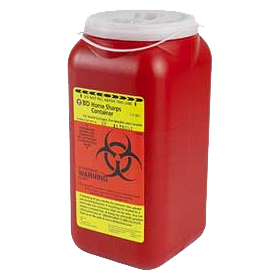Solid Waste Commission
To review the county's overall solid waste management plan for unincorporated areas and garbage collection rates.
To review the county's overall solid waste management plan for unincorporated areas and garbage collection rates.
We offer free tools and assistance to multifamily communities to improve on-site recycling and waste prevention programs. Tools include educational materials, signage, and more. These resources are free unless otherwise noted. Please use the form below to let us know how we can help.
Signage, flyers and more to help residents recycle right
We offer free tools and assistance to businesses, institutions and organizations to streamline your recycling and waste prevention programs. Please use the form below to let us know how we can help you. You can request support and supplies, or print resources directly.
We loan recycling containers for collecting plastic bottles and aluminum cans at events in Clackamas County. Please use the form below to request containers for your event.
Pro Tip: Read the Recycling at Events Guide to plan waste prevention, recycling and other green practices at your event.
Oregon’s Opportunity to Recycle Act requires property managers of multifamily communities with 5+ units to:
We can help by offering recycling resources and services to meet the unique needs of your community.
We offer free recycling resources and services to meet the unique needs of multifamily communities. This includes:
Regionally, we recognize that multifamily communities face challenges with garbage and recycling that single-family homes don’t. Together, we are trying to help with a number of improvements outlined in the 2030 Regional Waste Plan:
For additional details, view our Multifamily Regional Service Standard Improvements Summary Flyer.
*View recent multifamily bulky waste reports: 2022-23 ClackCo Multifamily Bulky Waste Project | 2021 ClackCo Multifamily Bulky Waste Pilot
Sign up for our quarterly e-newsletter to receive hints, tips and reminders for property managers, staff and residents. Content can be shared, copied and inserted into your own community newsletters.
Sign up for Multifamily eNewsletter
Download our waste reduction and recycling rating tool to help identify opportunities for improvement in your community.
Having a successful garbage and recycling system in your community benefits everyone: property managers, residents, maintenance staff and the collector. It can also help keep your costs manageable and predictable. Below are a few things you can do to get your community off on the right foot (don’t hesitate to contact us for help):
To effectively manage bulky waste (large, unwanted items, like sofas and TVs), have a plan:
Hazardous waste can pose a health and safety risk to you, workers, and the environment.
These items should be properly disposed of at a household hazardous waste facility:
If you find these items in your home, we recommend using them up (pool, spa, art or other chemicals). If you no longer have use for them, see if a family member or neighbor is in need of the product (paints, stains, etc.). If the items are no longer usable or you cannot find someone who could use them, households can safely dispose of up to 35 gallons of hazardous household products at Metro's household hazardous waste facility in Oregon City.
View our Garbage and Recycling Transfer Stations and Depots page to find disposal locations throughout the county for common household hazardous waste, including the Metro South Household Hazardous Waste Facility.
Unsure where to properly dispose of an item? Use the Metro Find a Recycler tool or call 503-234-3000.

Take up to seven qualifying items at a time to an Oregon E-Cycles collection site for free recycling.

Safely dispose of unwanted medications at a drug take-back box.

PaintCare makes it easy to recycle leftover paint, primers, stains, sealers, and more for no fee.

Learn the Oregon laws about containment and disposal of household medical sharps.
Look up how to dispose of an item or call 503-234-3000.
Consider reducing the hazardous products you use at home:
Trash, old appliances, mattresses, tires, furniture, oil, antifreeze and pesticides are a few of the things dumped on public lands, sidewalks, alleyways and waterways, putting human health and wildlife at risk.
If you see people actively dumping items, do not confront them. Note the vehicle’s license plate number, make and model, items dumped and location. You can report this information to your local law enforcement.
Report a Clackamas County Road Concern (by phone or online form).
Contact Metro Regional Illegal Dumping Patrol (RID Patrol).
Clean up of illegal dumps on private property is the responsibility of the property owner. Concerns about the collection of waste on a neighbor’s property can be reported to code enforcement.
Contact Clackamas County Code Enforcement.
Contact your city’s code enforcement.